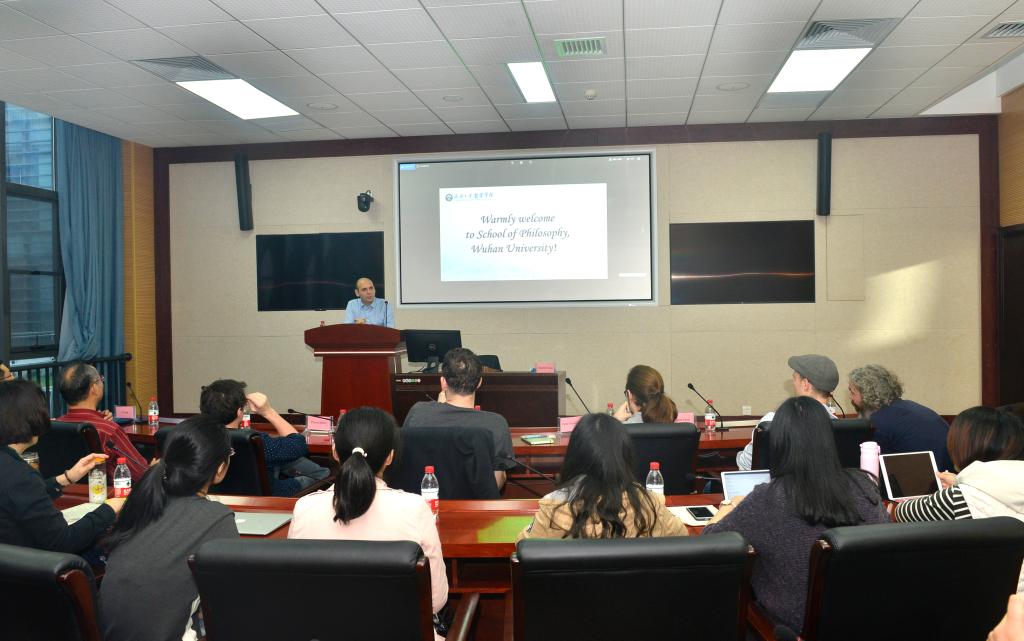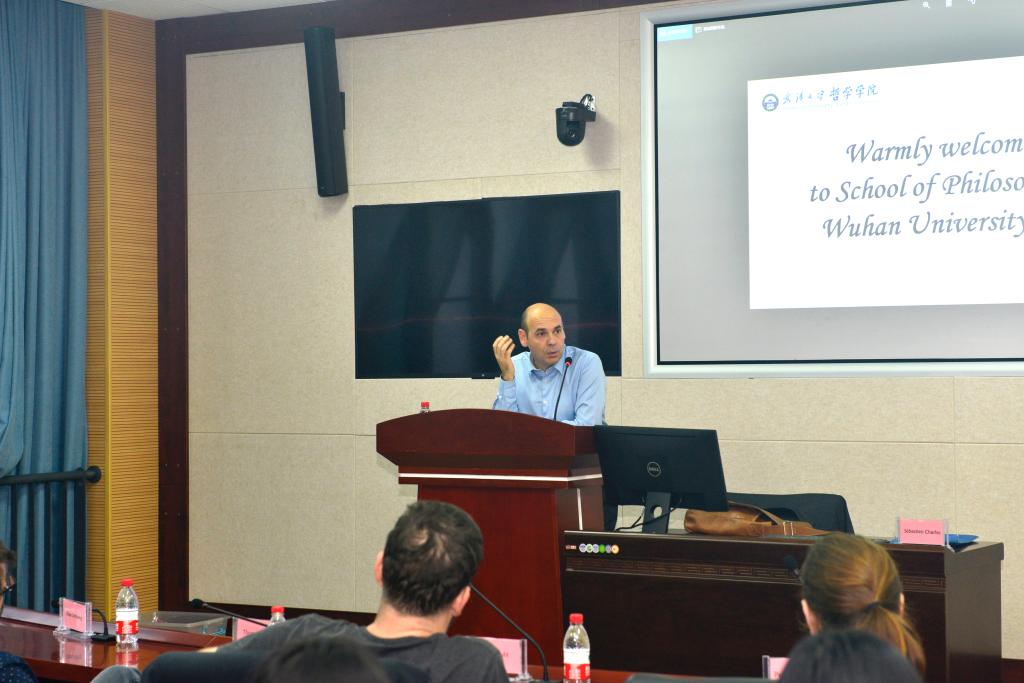On October 26, lecture on “Scepticism in Early Modern Times” was given by Professor Sébastien Charles, Vice-President of Research and Development at the Université du Quebec à Trois-Rivières (Canada), in School of Philosophy, WHU.

In the speech, Professor Sébastien Charles proposed a critical reading of Richard Popkin's interpretation of the nature and function of early modern scepticism. He presented three figures of that period analyzed by Popkin, namely those of Pierre-Daniel Huet, Simon Foucher and Jacques-Pierre Brissot de Warville. By doing so, he underlined the difficulty to present a coherent and consistent history of early modern scepticism and the importance to determine precisely the role and function of scepticism at that time, where scepticism was more a personal reconstruction than a shared legacy, which raised of course the question of its interpretation.
Firstly, he thought it was not very important whether Huet was truly a Pyrrhonean or an academic sceptic, or more one than the other. In his opinion, Huet was above all a Christian philosopher which used scepticism above all in a purely strategic way to serve his apologetic project, which is to preserve Christian religion from the attack of early modern rationalism.
Secondly, he considered that Foucher advances a “fallibilist” conception of science, because he deemed that scientific propositions could be considered true so long as we managed to show that any other explanations for the same phenomena were false. In this way, progress was possible in science so long as we were in agreement about both the fact that scientific truths were revocable and the fact that they were not of the same order as the truths proper to the apodictic sciences. This scientific method, whose discovery, according to Foucher, was to be credited to the Academics, had the advantage of avoiding dogmatism and pyrrhonism at the same time, as for Foucher, pyrrhonism was a form of negative dogmatism.
Thirdly, he viewed that Brissot appeared to have understood that the reactivation of scepticism in the eighteenth century presumed its readjustment and that the scepticism of the Enlightenment could not be independent of the new imperative of public utility which the philosopher must obey – so breaking with the Hellenistic ideal of the philosopher who was indifferent to the values shared in the public space.

Lastly, to make a conclusion , Professor Sébastien Charles said , “If I have malgré tout to precise and give an idea of what modern skepticism meant for me, I would distinguish two forms of it. First, a radical form, which was dominant in the 17th century, where sceptical arguments served above all religious stakes, whether to preserve the religion from rationalism or, on the contrary, to undermine religion by making doubtful the principles on which it is based (dogmas, miracles, prophecies, etc.). Second, a more mitigated form, specific to the 18th century, where scepticism is above all a method to overcome our prejudices and to build knowledge collectively according to the encyclopaedic model. All this may seem far from ancient scepticism, but it seems to me, nevertheless, that the spirit of scepticism has been preserved over time, which consists in thinking by oneself and distrusting dogmatism and prejudices, as if there were in fact a kind of skepsis perennis. ”



